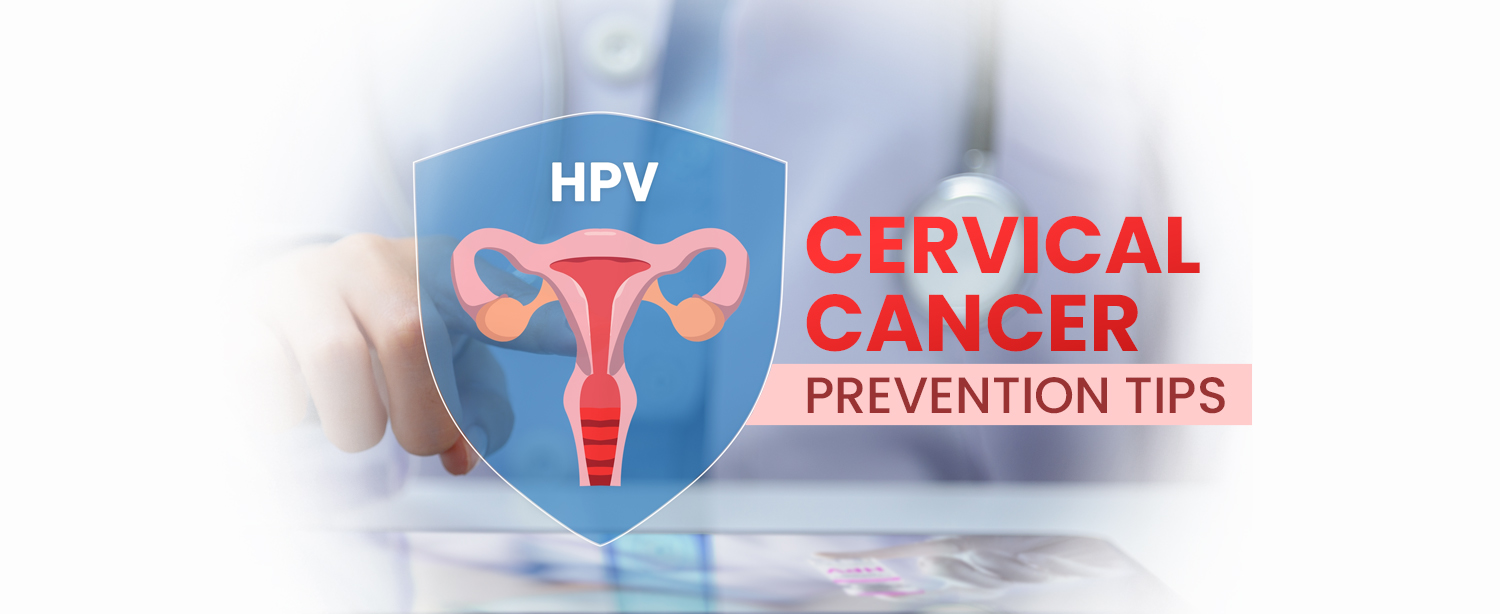Cervical cancer represents a significant health concern worldwide, but it is particularly pressing in India, where it stands as the third most common cancer among women. In 2022 alone, India witnessed 127,526 new cases, with an incidence rate of 18.3%. This alarming statistic underscores the urgency of effective prevention strategies to be implemented right away across rural and urban India.
Table of Contents
What is Cervical cancer?
Cervical cancer begins as aberrant cell alterations in the cervix and progresses extremely slowly. Cervical screening tests may detect these alterations, even though they don’t create any symptoms. Treatment can stop cancer from growing if the tests reveal aberrant cell alterations.The journey to eradicating cervical cancer includes comprehensive strategies like vaccination, regular screenings, and timely treatment. Here are some essential preventive steps to follow:
Step 1: Vaccination
One of the most robust defenses against cervical cancer is the HPV vaccine. Human papillomavirus (HPV) is linked to almost all cervical cancer cases. It is so common that nearly everyone will be exposed at some point in their lives. However, the body’s immune system usually clears the virus before it can cause any harm. Vaccination plays a crucial role in this aspect, ideally administered during childhood to provide immunity before any exposure occurs. The vaccine is recommended for adolescents starting at ages 11 or 12, although it can be administered as early as age 9. Adults should ideally be vaccinated before age 27 to maximize the vaccine’s protective benefits.
Step 2: Screening
Despite the long-lasting protection offered by the HPV vaccine, it does not guard against all types of HPV nor prevent all forms of cervical cancer, which makes regular screening paramount. Screening processes like Pap tests and HPV tests are critical in detecting precancerous conditions before they develop into full-blown cancer. For optimal protection, women should start Pap smear tests by age 21. Regular screenings are essential because cervical cancer is most treatable when detected early, and discussing the appropriate frequency of these tests with a healthcare provider is recommended.
Step 3: Timely Treatment
If a screening test returns positive for HPV or abnormal results, it does not immediately indicate cancer, but it does necessitate a careful follow-up. A detailed plan based on the individual’s age, test results, and other health factors will be crafted by healthcare professionals. Access to regular healthcare services significantly reduces the chances of developing cervical cancer.
The path to a cervical cancer-free life involves preventive vaccination, consistent screening, and proactive medical consultations. Facilities across India, especially in urban settings, are equipped to provide these services, contributing to the broader goal of diminishing this disease’s impact. Remember, informed actions and choices made today can safeguard health and enhance life quality tomorrow, aligning with the mission of the best cervical cancer hospitals and specialists in the country.It is time to prioritize your health and visit the best cervical cancer hospital in India – Kokilaben Dhirubhai Ambani Hospital, Mumbai for screening and vaccination.
Cervical Cancer Treatment at Kokilaben Dhirubhai Ambani Hospital, Mumbai
At our Centre for Cancer we offer multidisciplinary care for treatment of cervical cancer including chemotherapy, radiation therapy, and advanced robotic surgery. Robotic surgery merges the benefits of conventional open surgery and laparoscopic techniques, enhancing surgical precision and reducing patient trauma. Cervical cancer doctors in Mumbai offer preventive care that includes screening and vaccination as well as specialized cervical cancer care. Please find below our website details for more information: https://www.kokilabenhospital.com/departments/centresofexcellence/centrefor_cancer.html


